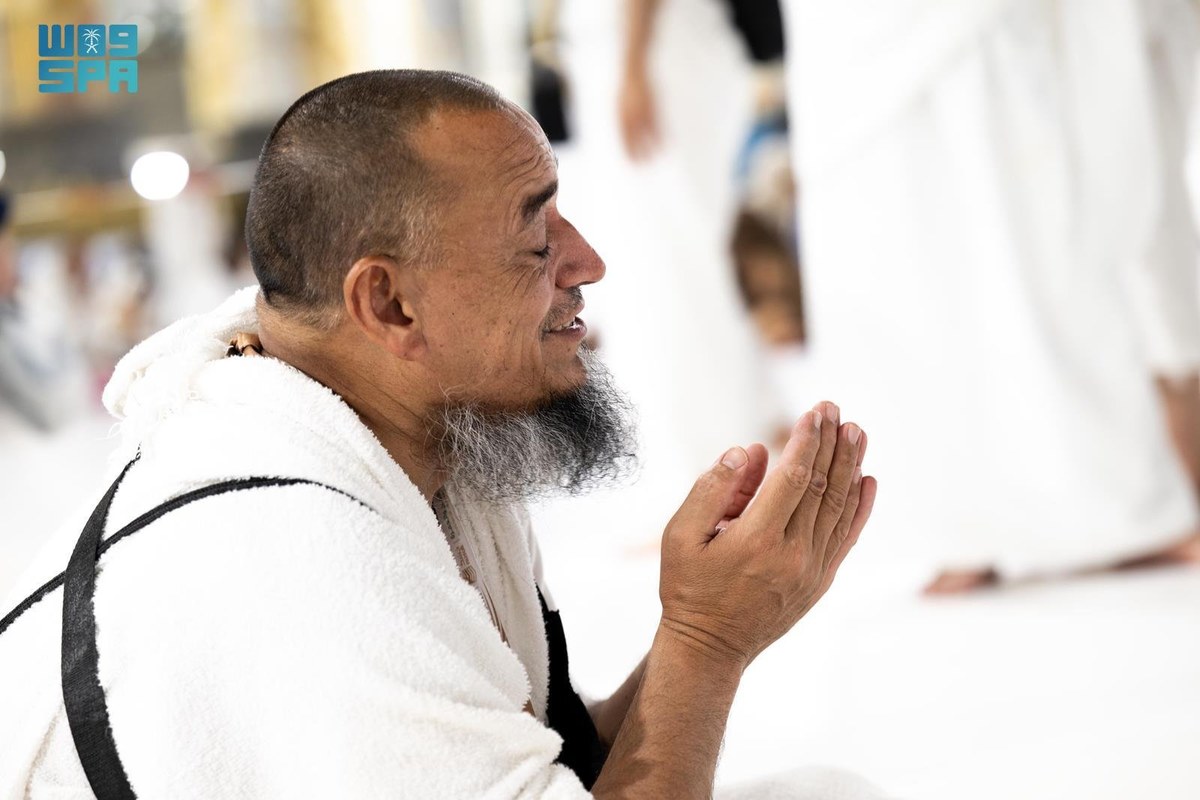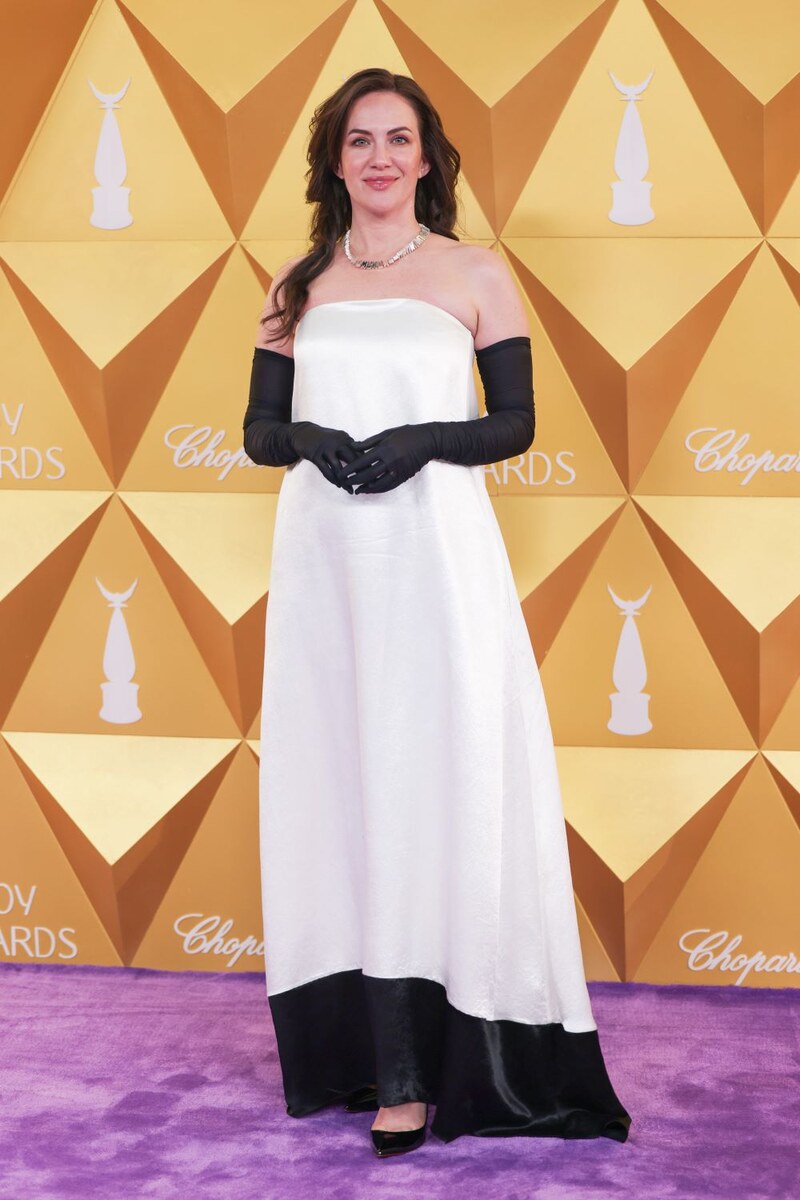JEDDAH: In sweltering temperatures, Muslim pilgrims in Makkah converged on a vast tent camp in the desert on Friday, officially opening the annual Hajj pilgrimage. Ahead of their trip, they circled the Kaaba in the Grand Mosque, Islam’s holiest site.
More than 1.5 million pilgrims from around the world have already amassed in and around Makkah for the Hajj, and the number was still growing as more pilgrims from inside Saudi Arabia joined.
Saudi authorities expected the number to exceed 2 million this year.
This year’s Hajj came against the backdrop of the raging war in the Gaza Strip between Israel and Palestinian militants, which pushed the Middle East to the brink of a regional war between Israel and its allies on one side and Iran-backed militant groups on the other.
Palestinians in the coastal enclave of Gaza were not able to travel to Makkah for Hajj this year because of the closure of the Rafah crossing in May when Israel extended its ground offensive to the strip’s southern city of Rafah on the border with Egypt.
“We pray for the Muslims, for our country and people, for all the Muslim world, especially for the Palestinian people,” Mohammed Rafeeq, an Indian pilgrim, said as he headed to the tent camp in Mina.

Pilgrims started Hajj by praying Fajr in the Grand Mosque in Makkah. (SPA)
Palestinian authorities said 4,200 pilgrims from the occupied West Bank arrived in Makkah for Hajj. Saudi authorities said 1,000 more from the families of Palestinians killed or wounded in the war in Gaza also arrived to perform Hajj at the invitation of King Salman of Saudi Arabia. The 1,000 invitees were already outside Gaza — mostly in Egypt — before the closure of the Rafah crossing.
“We are deprived of (performing) Hajj because the crossing is closed, and because of the raging wars and destruction,” said Amna Abu Mutlaq, a 75-year-old Palestinian woman in Gaza’s southern city of Khan Younis who had planned to perform Hajj this year but was unable to. “They (Israel) deprived us from everything.”
This year's Hajj also saw Syrian pilgrims traveling to Makkah on direct flights from Damascus for the first time in more than a decade. Syrians in rebel-held areas used to cross the border into neighboring Turkey in their trip to Makkah for Hajj.
“This is the natural thing: Pilgrims go to Hajj directly from their home countries,” said Abdel-Aziz al-Ashqar, a Syrian coordinator of the group of pilgrims who left Damascus this year for Hajj.

Pilgrims started Hajj by praying Fajr in the Grand Mosque in Makkah. (SPA)
The pilgrimage is one of the Five Pillars of Islam, and all Muslims are required to make the five-day Hajj at least once in their lives if they are physically and financially able to do so.
It is a moving spiritual experience for pilgrims who believe it absolves sins and brings them closer to God, while uniting the world’s more than 2 billion Muslims.
For many Muslims, the Hajj is the only major journey that they make in their lives. Some spend years saving up money and waiting for a permit to embark on the journey in their 50s and 60s after raising their children.
The rituals during the Hajj largely commemorate the Quran’s accounts of Prophet Ibrahim, his son Prophet Ismail and Ismail’s mother Hajar — or Abraham and Ismael as they are named in the Bible.
Male pilgrims wear an ihram, two unstitched sheets of white cloth that resemble a shroud, while women dress in conservative, loose-fitting clothing with headscarves and forgo makeup and perfume. They have been making the ritual circuit around the Kaaba in the seven-minaret Grand Mosque since arriving in Makkah over recent days.
Saudi authorities have adopted security restrictions in and around Makkah, with checkpoints set up on roads leading to the city to prevent those who don’t have Hajj permits from reaching the holy sites.
Security authorities arrested many people who attempted to take pilgrims to Makkah who didn’t have Hajj permits, said Lt. Gen. Muhammad al-Bassami, head of the Hajj Security Committee. Most were expelled from the country, while travel agents faced jail for up to six months, according to the Interior Ministry.

Pilgrims head to Mina to spend the first day of Hajj. (SPA)
Many pilgrims whose documentations were not complete paid fines to be allowed into Makkah.
On Friday, the pilgrims made their way to Mina, officially opening the Hajj. They then will move for a daylong vigil Saturday on Mount Arafat, a desert hill where the Prophet Muhammad is said to have delivered his final speech, known as the Farewell Sermon. Healthy pilgrims make the trip on foot, others use a bus or train.
The time of year when the Hajj takes place varies, given that it is set for five days in the second week of Dhu al-Hijjah, the last month in the Islamic lunar calendar.
Most of the Hajj rituals are held outdoors with little if any shade. When it falls in the summer months, temperatures can soar to over 40 Celsius. The Health Ministry has cautioned that temperatures at the holy sites could reach 48 Celsius.

Pilgrims head to Mina to spend the first day of Hajj. (SPA)
Many pilgrims carried umbrellas to use under the burning sun, and in Mina charities distributed cold water and cooling stations sprayed pilgrims with water to cool them down. The faithful set up in their tents, resting in the rows of cubicles and praying together to prepare for the coming rituals.
After Saturday’s warship in Arafat, pilgrims will travel a few kilometers to a site known as Muzdalifa to collect pebbles that they will use in the symbolic stoning of pillars representing the devil back in Mina.
Pilgrims then return to Mina for three days, coinciding with the festive Eid al-Adha holiday, when financially able Muslims around the world slaughter livestock and distribute the meat to poor people. Afterward, they return to Makkah for a final circumambulation, known as Farewell Tawaf.
In recent years, the annual pilgrimage has returned to its monumental scale after three years of heavy restrictions because of the coronavirus pandemic. In 2023, more than 1.8 million pilgrims performed Hajj, approaching the level in 2019, when more than 2.4 million participated.































